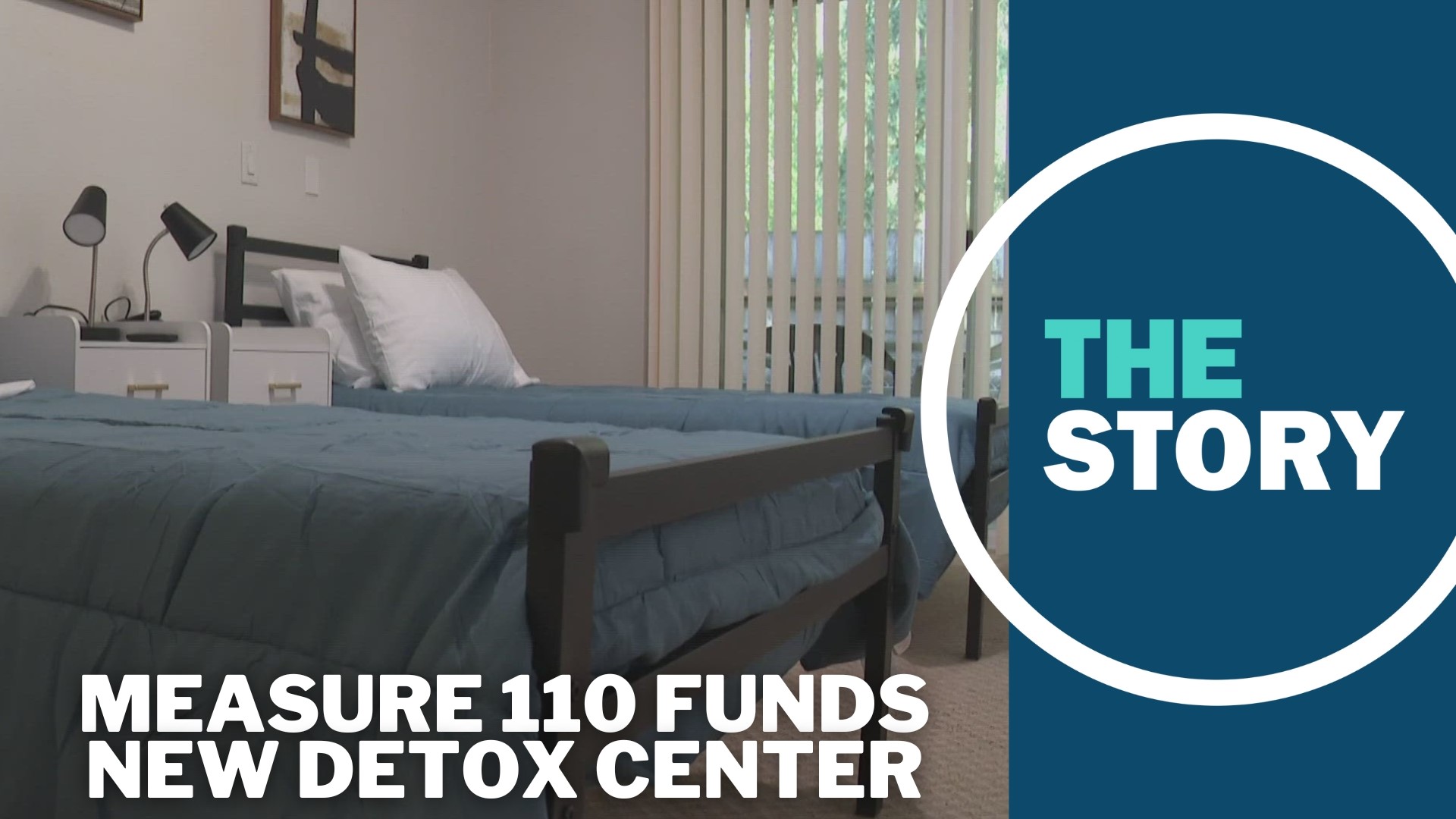PORTLAND, Ore. — Praise for Oregon's Measure 110 rang out of a home turned detox center deep in Southeast Portland on Friday. People who work in the addiction recovery field packed into the lobby, alongside members of the state legislature and Multnomah County District Attorney Mike Schmidt.
Come September, the new detox facility off Southeast Foster Road will open its doors with Recovery Works Northwest to run it. It'll be the third detox facility in Portland to accept people insured through the Oregon Health Plan, working to fill what has become a deadly gap in services.
“The sharp increase in overdose deaths has been driven by the proliferation of the illicitly produced fentanyl,” said Joe Bazeghi, engagement director at Recovery Works Northwest.
Unlike Portland’s larger detox centers — Hooper Detox Stabilization Center and Fora Health — this one will not take walk-ins.
Another difference is that it's the first detox facility in the state funded through Measure 110, the controversial law passed by voters back in 2020. It decriminalized certain amounts of hard drugs and funneled marijuana tax revenue into opening treatment centers.
State Representative Rob Nosse, a Democrat from Portland, supported Measure 110 and was behind a bill passed this last legislative session intended to make improvements to the law.
“This would not be here today without ballot Measure 110 — we would not have this without cannabis tax funding,” said Nosse.
Admittedly, the money was slow to roll out. It took two years before Recovery Works got the $2 million needed to open the Southeast Portland center. Detox in particular has run afoul of some gray areas in Measure 110 that have made grant funding difficult to seek.
RELATED: Drug treatment in Oregon still hitting a bottleneck at inpatient care
“It was challenging in its ways. There were some unknowns on our side, on the (Oregon Health Authority) side, on the voters of Oregon, lots of unknowns ... it was a matter of just sticking with it and having faith that this new experiment would show results,” said Bazeghi.
Three years later, Recovery Works is about to open 16 new detox beds for people to stay for between three and five days. The beds are only for those addicted to certain substances: fentanyl, opiods and alcohol. That's due to insurance reasons.
“This is a sustainable program. It will stand on its own legs,” said Bazeghi.
But there remains another side to Measure 110 that simply can't be ignored. Under this law, the only repercussions for smoking hard drugs like fentanyl is a citation and a $100 fine — one that can be waived by making an attempt to seek help — amid an alarming increase in overdoses and deaths.
“There's not enough resources. There's not enough people that know where to go, what to do,” said Zach, who lives out of a shopping cart in downtown Portland. He’s no stranger to detox centers.
“I've detoxed off heroin before and that was hell. I’ve been sick off f*** fentanyl ... you'd be puking, sh*** uncontrollably … It doesn't help because you end up right back on the streets, right back into drugs,” Zach said.
He sees this new center as just a small step forward, one that isn't keeping pace with the scale of the problem.
“Sixteen beds?! I'm laughing at 16 beds," Zach said incredulously. "Look down the street right here, look down that street right there, I bet you half of them are hooked on opioids right now. If half of us went in there, that's 30 people right there. What are 16 beds going to do? That waitlist's going to be years long."
It's a reality not lost on those running the site.
“We need more. We already anticipate waitlists even at this facility so more beds are just a benefit for our community,” added Bazeghi.
Recovery Works Northwest plans to open an outpatient drug treatment center with money from Measure 110 in Milwaukee by the end of this year.

